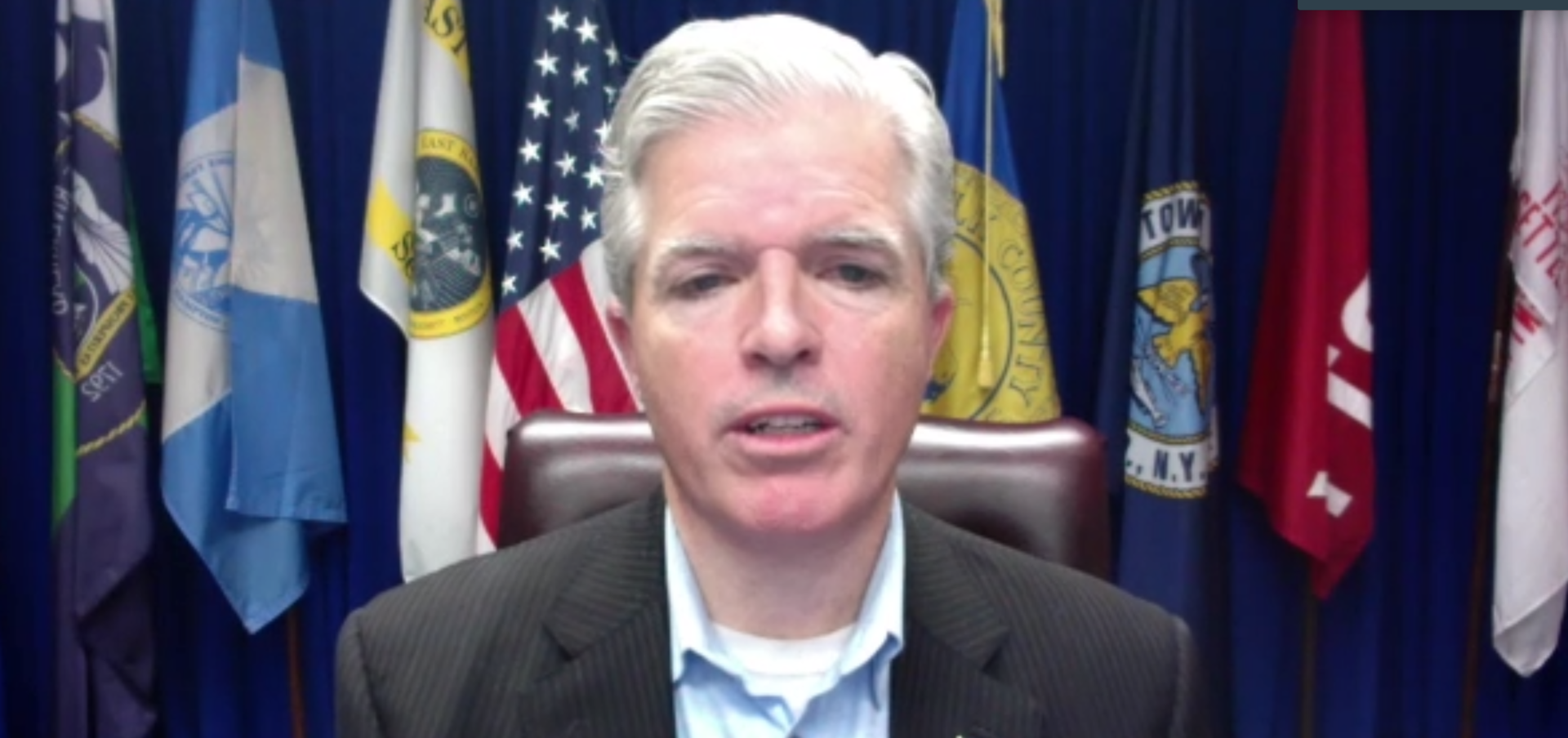Some Temporary Property Tax Relief Coming For Suffolk

Suffolk County officials are looking to extend the deadline for property tax bills until July 15 for those economically impacted by the outbreak of the novel coronavirus and the subsequent shutdown of the economy, County Executive Steve Bellone announced on May 20.
After discussing the developing situation for the past five weeks, the county’s Municipal Finance Working Group, made up of town supervisors, library district representatives, fire district commissioners, school district officials, and village mayors, unanimously approved a temporary tax relief plan on Wednesday. The 45-day property tax extension will mean all fees and penalties associated with late payment will be waived if the bills are paid before July 15.
“We know that there has been economic devastation that has been brought on by this terrible virus,” Bellone said during his daily briefing, held via Zoom. The relief will provide homeowners with “a little breathing space.”
The county executive said he will now submit a letter to Governor Andrew Cuomo to approve the plan.
Qualifying homeowners are those who have lost at least 25 percent of their income because of COVID-19. Commercial businesses with a net profit of $1 million or less that lost 50 percent of its revenue because of the virus are also eligible. All they will have to do is sign an attestation form.
Bellone said that the move will give homeowners more time to pay their property tax bills, since many still have not received unemployment checks with the state’s backlog. Likewise, he said, there are many small business owners still struggling to secure the Paycheck Protection Program loans from the federal government.
Southampton Town Supervisor Jay Schneiderman, who sat on the municipal finance committee, briefly spoke on Wednesday’s call. “I guess, no one loves paying their property taxes,” he said. “Without property taxes, we cease to exist,” he said, noting it pays for fire, police, school, and other essential services.
Still, a large segment of the population has been deeply affected by the pandemic. “A lot of people have been economically impacted and they are finding it hard to pay the bills,” and officials from all levels of government knew they had to act, he said. It was more complicated to address than even Schneiderman, who has been a county legislator and a supervisor in two towns, realized. “It seemed so simple,” he said, but “This was not an easy problem to solve.”
Bellone said the extension was made possible due to the “coming together” of many factors, including funding from the CARES Act and Municipal Liquidity Facility, established by the Federal Reserve to help state and local governments better manage cash flow.
Town of Smithtown Supervisor Edward Wehrheim, who early on talked about the need for such relief, called it a “tremendous intergovernmental effort.”
Dr. Marianne Cartisano, the Superintendent of the Miller Place School District, spoke on behalf of school districts, thanking government officials for coming up with a plan that allowed schools to still meet their bond payments and payroll.
Money in escrow through mortgage payments will still be going to pay property taxes on time, Bellone said.
The working group will continue to discuss economic impacts. “We will continue to meet as we talk about the historic challenges that we all will be facing from a financial perspective,” Bellone said.
He also believes the federal government needs to provide additional relief. “We’re going to have a long road ahead no matter what,” he said. “We’ll see where we are six weeks from now.”
Business Impact
Bellone urged business owners to fill out an economic impact survey, produced in partnership with Nassau County to analyze the economic impact on Long Island. The survey from Hofstra University is available at www.suffolkcountyny.gov/bru.




